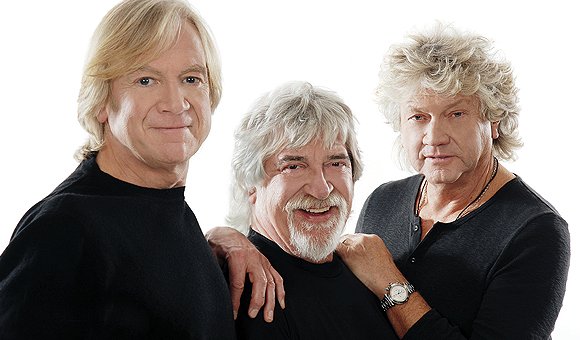Moody Blues: Never reaching the end
Share
What would he do if he gave up touring as a rock drummer, asks Graeme Edge at 70
By Mike Youds
Kamloops News
Precious Cargo is the name of the first cross-Canada tour ever by The Moody Blues, a remarkable first considering the band has been around since The Beatles were new.
“If you strictly read it, it is true,” explained drummer Graeme Edge in an interview from his Sarasota, Fla., home. “It is the first time across Canada and not back and forth across the border, but it’s a long way from our first time playing in Canada.”
And Precious Cargo?
“John (Lodge, the band’s bassist) thought it up and he meant we were carrying our music around to people.”
Only later were they informed that the expression has a double entendre, also meaning, in American military-speak, recovered hostages. They kept the title, though, preferring it over Lap of Honour, which might imply their final tour.
For diehard fans of the band — one of the last holdouts from the era of English Beat and the British Rock Invasion — what they’ll bring to Interior Savings Centre Wednesday is indeed precious.
The Moody Blues emerged as a rhythm-and-blues outfit but soon created a unique niche as pioneers of symphonic and progressive rock. Their halcyon years were 1967 to 1972, when they recorded seven groundbreaking albums that still resonate with poetic vision: Days of Future Passed; In Search of the Lost Chord; On the Threshold of a Dream; To Our Children’s Children’s Children; A Question of Balance; Every Good Boy Deserves Favour; and Seventh Sojourn.
Edge, now 70, is the sole original member, having joined the band when it formed in Birmingham, England in 1964. Lodge and singer/guitarist Justin Hayward, who are also part of this tour, joined in 1967.
“The new boys have only been with us 43 years,” Edge quipped.
With Ray Thomas, Mike Pinder and Denny Laine (who would later form Wings with Paul McCartney) he formed the shortlived original lineup. Pinder created the name from Duke Ellington’s song Mood Indigo and from M&B Brewery in hopes of a sponsorship, but that fizzled. They opened for a lot of blues artists, such as Sonny Boy Williamson and Memphis Slim, and played blues in those days.
The band, however, was only just getting started when they had a No. 1 hit with Go Now in ’64. They opened for The Beatles on the Fab Four’s second to last UK tour in ’65 , but touring was not how The Moody Blues made their name.
“Seeing what that kind of stardom did to them really made us want to concentrate on albums as opposed to singles,” Edge said, recalling how The Beatles were often confined to evade mobs of fans. “That was horrible; they couldn’t leave their hotel room.”
Wary of becoming one-hit wonders, they changed their sound (infused with Pinder’s revolutionary Mellotron, a forerunner of electronic keyboards) and so began a six-year roll after being signed by Decca Records. Each member of the band had a hand in the creative process. Edge was known as the poet, penning the spoken-word verse that segues between songs, such as The Day Begins/Late Lament:
Cold hearted orb that rules the night,
Removes the colours from our sight,
Red is grey and yellow white,
But we decide which is right,
And which is an illusion …
He hadn’t written that as a poem but as a song to complete the day/night cycle. There was no song that represented the early day.
“We were pretty good mid-day through evening, but being rock artists, we didn’t have much for the early day.”
His bandmates praised the verse but found it too wordy to sing. Instead, Pinder narrated: “He’d had far more cigarettes and whisky, so he had a gravelly voice.” The finished recording is surprisingly coherent and cohesive. All along, they were merely experimenting, though.
“Like a lot of things like that, you sort of stumble into it without realizing what you’re doing.”
Surprisingly, the band has not been inducted into the Rock ’N’ Roll Hall of Fame, an oversight that mystifies fans.
“It might be better this way because it comes up every year,” Edge said. “People say, ‘They’re not on the induction list again,’ giving the band a bit of extra play, not that they need the publicity.”
Not with a catalogue that includes the love ballad Nights in White Satin.
“Nights in White Satin charted three months ago in the U.K.,” Edge declared proudly. “It went back to No. 2 in England … .
“Some say maybe it’s because we’re not rock. I have no clue. The only thing I can say is, if we’re not rock ’n’ roll, what are we?”
Edge doesn’t like travelling but he can’t get enough touring. Every year they’re back on the road — nine months on, three months off. Backup percussionist Gordon Marshall helps reinforce the rhythm.
“I don’t know what I’d do (otherwise). I’m now 61/2 years older than my father when he retired. I don’t drink or take drugs anymore. The only drugs I take are across-the-counter painkillers.”
Those might come in handy as those septuagenarian hands pound out the solo on Higher and Higher.
“But I just love playing live.”
IN CONCERT
WHO: The Moody Blues
WHEN: Wednesday, Oct. 5, 7:30 p.m.
WHERE: Interior Savings Centre
TICKETS: On Sale Now!

